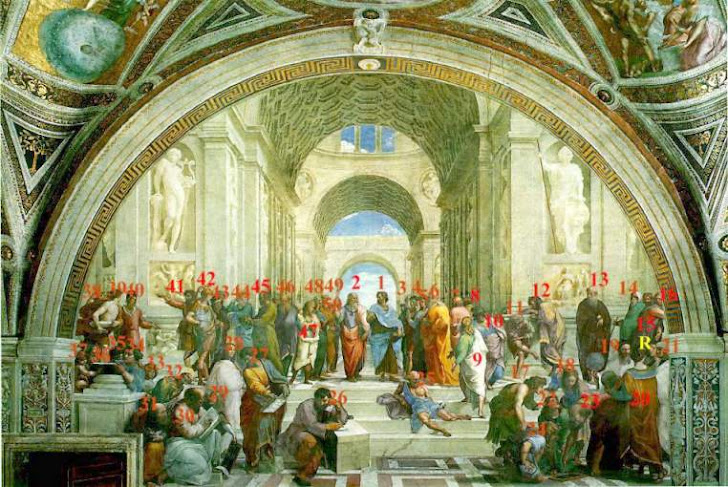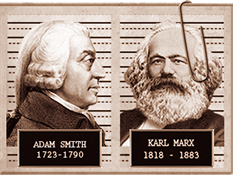Greco-Roman/Judeo-Christian Information:
Greco-Roman Notes pp. 5-11 (click on notes)
Greek Philosophers (Hand-out--click on philosophers)
Judeo-Christian Ideas pp. 12-17 (click to your right for notes)
English History
Development of Democracy in England (pp. 18-23 and pp. 180-183) click on title for PPT
*Development of Democracy in England Notes Prologue
*Development of Democracy in England Notes Ch. 5 sec. 5
*Development of Democracy in England Notes Ch. 5 sec. 5
Enlightenment/American Revolution Information
Enlightenment PPT
Greco-Roman Ideas (Main contributions to democracy)
Aristotle
Plato
Socrates
Republic (government)
democracy
direct democracy
Senate
12 Tables
Judeo-Christian Ideas (Main contributions to democracy)
10 Commandments
Morals/Ethics
Views of Individual, Views on Law
English History of Democratice Ideas (11 timeline items from Timeline focus on key points highlighted in class)
Enlightenment Philosophers Main Ideas (especially their impact on democracy)
All 7 philosophers on your foldables
5 Core beliefs of philosophers
American Revolution (Causes, Effects, Democratic ideas)
Thomas Jefferson
Declaration of Independence
U.S. Constitution
Bill of Rights
Federal System
James Madison
pp. 5-30, pp. 180-183, pp. 195-211 (pages that we have covered)
Aristotle
Plato
Socrates
Republic (government)
democracy
direct democracy
Senate
12 Tables
Judeo-Christian Ideas (Main contributions to democracy)
10 Commandments
Morals/Ethics
Views of Individual, Views on Law
English History of Democratice Ideas (11 timeline items from Timeline focus on key points highlighted in class)
Enlightenment Philosophers Main Ideas (especially their impact on democracy)
All 7 philosophers on your foldables
5 Core beliefs of philosophers
American Revolution (Causes, Effects, Democratic ideas)
Thomas Jefferson
Declaration of Independence
U.S. Constitution
Bill of Rights
Federal System
James Madison
pp. 5-30, pp. 180-183, pp. 195-211 (pages that we have covered)
Important Historical Document Analysis (Document Vocabulary)
Task: Analyze/Summarize key principles in the following documents:
1. Magna Carta
2. English Bill of Rights
3. Declaration of Independence
4. U.S. Bill of Rights
For each document write the following:
Top Flap
When the Document was written?
Which country did the document develop in?
Who was the document written for?
For each document you will write 3-4 main ideas/principles that the document has:
Unit 2 French Revolution
Assignments:
French Revolution Vocabulary Worksheet
French Revolution Chapter 7 Section 1 Notes & Power Point
French Revolution Political Cartoon
French Revolution Journal (see below)
French Revolution Chapter 7 Section 2 Notes & Power Point
Napoleon Chapter 7 Section 3 Notes & Power Point (same as section 4)
Napoleon Chapter 7 Section 4 Notes & Power Point
Napoleon Worksheet Hero or Villain
Napoleon Report Card Hand-out
Congress of Vienna Chapter 7 Section 5 Notes & Power Point & Hand-out
Chapter 7 French Revolution Study Guide
Chapter 7 Practice Test
Unit 3 Industrial Revolution (Chapter 9)
Industrial Revolution Vocabulary
Industrial Revolution Hand-outs
Industrial Revolution Group Invention Project
Industrial Revolution Quizzes
Ch. 9 Sec. 1 PPT
Ch. 9 Sec. 1 Notes
Ch. 9 Sec. 2 PPT
Ch. 9 Sec. 2 Notes
Effects of Industrialization
Ch. 9 Sec. 3 PPT
Ch. 9 Sec. 3 Notes
Industrial Revolution Flow-Chart
Ch. 9 Sec. 4 PPT
Ch. 9 Sec. 4 Notes
Analyzing Key Concepts: Capitalism, Socialism & Communism
Industrial Revolution Summary
Unit 3: Ch. 9 Study Guide
Unit 3 Ch. 9 Practice Test
Imperialism Unit Content Folder
1. Debrief Motives of Imperialism (Review bold print items on hand-out)
2. Imperialism Book
Hand-outs on Imperialism with Quick-writes (click on titles to access hand-outs):
Roots of Racism
Opium Wars
Suez Canal
Perry Opens Japan
Study Guide For Imperialism Test (Unit 4): Imperialism (Causes/Effects), Berlin Conference, Resistance to Imperialim, Industrialization and Imperialism connections, Africa and Imperialism (causes/effects), China/Imperialism (Opium War, Boxer Rebellion, Open Door Policy), Imperialism/Subjugation, India/Imperialism (Sepoy Mutiny), U.S./Imperiliasm, Social Darwinism, Direct and Indirect Control (Ch. 11 sections 1-5, Ch. 12 Sections 1-4, Ch. 8 section 1)
Introduce WWI Ch. 13 sec. 1 (Get notes by clicking title)
Who Caused WWI Activity (Click title for hand-outs)
WWI Battles Activity-Prediction Cycle Map -- http://www.pbs.org/greatwar/maps (WWI Web-site) Major Turning Points of WWI
Human Costs of War and Colonial Contributions Versailles Activity
Ch. 13 section 4 Notes "A Flawed Peace"
Final Exam Study Guide
Task: Analyze/Summarize key principles in the following documents:
1. Magna Carta
2. English Bill of Rights
3. Declaration of Independence
4. U.S. Bill of Rights
For each document write the following:
Top Flap
When the Document was written?
Which country did the document develop in?
Who was the document written for?
For each document you will write 3-4 main ideas/principles that the document has:
Bottom Flap
Main Idea/Principle (use principle's from list of 8)
Main Idea/Principle (use principle's from list of 8)
Main Idea/Principle (use principle's from list of 8)
Main Idea/Principle (use principle's from list of 8)
Main Idea/Principle (use principle's from list of 8)
Unit 2 French Revolution
Assignments:
French Revolution Vocabulary Worksheet
French Revolution Chapter 7 Section 1 Notes & Power Point
French Revolution Political Cartoon
French Revolution Journal (see below)
Old Regime---Journal Entry
• Write about what life was like under the old Regime (as a peasant, clergy member, noble or part of the royal court) by discussing the conditions, the financial crisis, other factors, and what should be done to resolve the problems of France prior to outbreak of the French Revolution.
French Revolution Chapter 7 Section 2 Notes & Power Point
****Absent students on the day of the French Revolution Video days will complete the following: p. 243; Writing About History (Only complete the first four bullets on this assignment)
**EACH JOURNAL ENTRY MUST BE 5-8 SENTENCES LONG AND BASED ON THE FOLLOWING:
1. REVOLUTIONARY (FIRST BULLET)
2. A WOMAN DURING THIS TIME PERIOD (2ND BULLET)
3. A SPECTATOR OF THIS EVENT (3RD BULLET)
4. A SUPPORTER OF ROBESPIERRE (4TH BULLET)
Napoleon Chapter 7 Section 4 Notes & Power Point
Napoleon Worksheet Hero or Villain
Napoleon Report Card Hand-out
Congress of Vienna Chapter 7 Section 5 Notes & Power Point & Hand-out
Chapter 7 French Revolution Study Guide
Chapter 7 Practice Test
Unit 3 Industrial Revolution (Chapter 9)
Industrial Revolution Vocabulary
Industrial Revolution Hand-outs
Industrial Revolution Group Invention Project
Industrial Revolution Quizzes
Ch. 9 Sec. 1 PPT
Ch. 9 Sec. 1 Notes
Ch. 9 Sec. 2 PPT
Ch. 9 Sec. 2 Notes
Effects of Industrialization
Ch. 9 Sec. 3 PPT
Ch. 9 Sec. 3 Notes
Industrial Revolution Flow-Chart
Ch. 9 Sec. 4 PPT
Ch. 9 Sec. 4 Notes
Analyzing Key Concepts: Capitalism, Socialism & Communism
Industrial Revolution Summary
Unit 3: Ch. 9 Study Guide
Unit 3 Ch. 9 Practice Test
Imperialism Unit Content Folder
1. Debrief Motives of Imperialism (Review bold print items on hand-out)
2. Imperialism Book
Hand-outs on Imperialism with Quick-writes (click on titles to access hand-outs):
Roots of Racism
Opium Wars
Suez Canal
Perry Opens Japan
Study Guide For Imperialism Test (Unit 4): Imperialism (Causes/Effects), Berlin Conference, Resistance to Imperialim, Industrialization and Imperialism connections, Africa and Imperialism (causes/effects), China/Imperialism (Opium War, Boxer Rebellion, Open Door Policy), Imperialism/Subjugation, India/Imperialism (Sepoy Mutiny), U.S./Imperiliasm, Social Darwinism, Direct and Indirect Control (Ch. 11 sections 1-5, Ch. 12 Sections 1-4, Ch. 8 section 1)
Introduce WWI Ch. 13 sec. 1 (Get notes by clicking title)
Who Caused WWI Activity (Click title for hand-outs)
WWI Battles Activity-Prediction Cycle Map -- http://www.pbs.org/greatwar/maps (WWI Web-site) Major Turning Points of WWI
Human Costs of War and Colonial Contributions Versailles Activity
Ch. 13 section 4 Notes "A Flawed Peace"
Final Exam Study Guide




